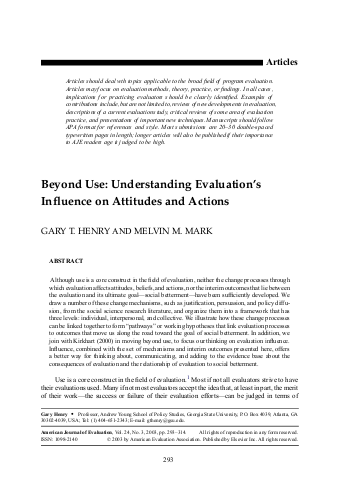
Although use is a core construct in the field of evaluation, neither the change processes through which evaluation affects attitudes, beliefs, and actions, nor the interim outcomes that lie between the evaluation and its ultimate goal—social betterment—have been sufficiently developed. We draw a number of these change mechanisms, such as justification, persuasion, and policy diffu- sion, from the social science research literature, and organize them into a framework that has three levels: individual, interpersonal, and collective. We illustrate how these change processes can be linked together to form “pathways” or working hypotheses that link evaluation processes to outcomes that move us along the road toward the goal of social betterment. In addition, we join with Kirkhart (2000) in moving beyond use, to focus our thinking on evaluation influence. Influence, combined with the set of mechanisms and interim outcomes presented here, offers a better way for thinking about, communicating, and adding to the evidence base about the consequences of evaluation and the relationship of evaluation to social betterment.